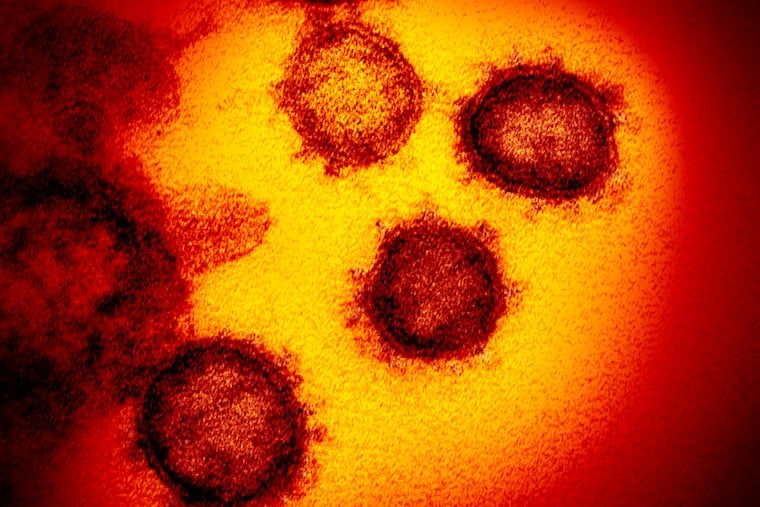Vaccines give these Philly researchers hope, but the COVID-19 variants make them cautious of letting their guard down | Expert Opinion
If a variant has mutated enough and looks different enough from the original virus that was used to design the current vaccines, it could be capable of “escaping” the vaccine and make even vaccinated

June 2021 has felt very different from June 2020. Vaccinations are beginning to deliver on the promise of returning life to pre-COVID normalcy; cases have been steadily declining since mid-April and are down to less than 200 cases a week in Philadelphia. But we are microbiologists, and we’re not ready to put away our masks.
The virus that causes COVID-19 keeps changing, as all viruses do, and we are paying close attention to what those changes mean for public health.
Variants arise as the virus spreads from one person to another and replicates. Each time the virus replicates, it can change its genetic material slightly. Each of these changes, called mutations, can result in a “variant of interest.” The mutated virus may have new properties, such as the ability to spread more easily or make people sicker. A variant that has acquired these properties is called a “variant of concern.” Variants such as B.1.1.7 (also known as Alpha, first detected in the United Kingdom), B.1.351 (also known as Beta, first detected in South Africa), and B.1.617 (also called Kappa or Delta, first detected in India) are all variants of concern. These variants all are present in Philadelphia.
If a variant has mutated enough and looks different enough from the original virus that was used to design the current vaccines, it could be capable of “escaping” the vaccine and make even vaccinated people sick. In order for these mutations to occur and for variants of concern to develop, the virus needs human hosts. So we must stop the virus from spreading using the most powerful tools we have: especially vaccines, but also masks, ventilation, and social distancing.
Vaccines make us microbiologists hopeful, but the variants make us cautious. Scientists at Penn Medicine have found that the frequency of variants of concern among cases in Philadelphia has dramatically increased, as you can see here at this interactive website. Researchers sequenced a random sample of about 10% of the positive cases from the University of Pennsylvania Health System and found that roughly 95% of the cases could be attributed to a variant of interest or concern.
To date, scientists have not identified a specific variant that is capable of “escaping” the approved vaccines, but across the globe, that prospect looms. What happens far from Philadelphia will eventually affect our lives and health here. It is therefore crucial that we “think globally and act locally” — by getting vaccinated, and yes, by continuing to wear masks indoors — to prevent new variants from arising. Philadelphia has taken great leaps toward reopening; all “Safer At Home” restrictions are currently lifted, with the exception of the indoor masking requirement in settings such as medical offices.
Right now, 40% of all residents in Philadelphia have been fully vaccinated, meaning that nearly 3 out of 5 Philadelphians still remain largely at risk of getting infected. Many of these Philadelphians are children younger than 12 who are not yet eligible to receive the vaccination, and must rely on their elders to protect them by getting vaccinated.
So sign up to receive the vaccine as soon as possible if you have not done so, and continue abiding by local public health guidelines. If you are older than 12, you are eligible for the vaccine now. The vaccine doesn’t reach peak effectiveness until two weeks after the second dose, so until you’ve hit that milestone, remain especially vigilant; it’s possible for you to get infected in between doses.
We are fed up with this pandemic, but we also know we won’t be able to overcome COVID-19 anytime soon if a variant capable of escaping the vaccine reaches our community. So to keep our community safe, as two fully vaccinated microbiologists, we will keep masking a while longer.
Nawar Naseer recently graduated with her doctorate in microbiology, and is pursuing a master’s of public health. Katie Strelau is finishing her doctorate in microbiology, and is studying SARS-CoV-2 transmission patterns in Philadelphia. They co-led the effort to establish the Penn Public Health COVID-19 Response Team’s contact tracing effort for the University of Pennsylvania, in collaboration with the Philadelphia Department of Public Health.